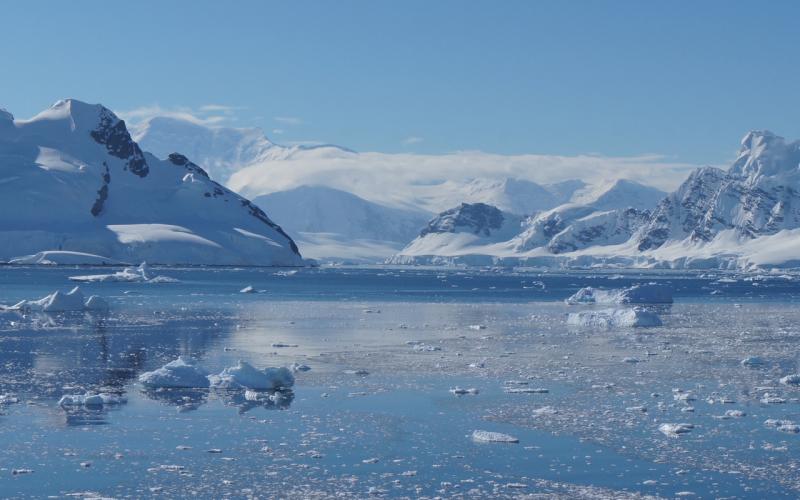Fishing for krill in the Southern Ocean, even at low levels, can affect the reproduction and growth of penguins that also depend on krill.
The findings from new research in Antarctica were published this week in Scientific Reports. They show that while fishing may remove only a very small share of the teeming masses of krill around Antarctica, this activity can still reduce the food available to predators in certain areas. The impacts of fishing on penguins can be similar in magnitude to the effects of poor environmental conditions.
The krill fishery is regulated by the Commission for Conservation of Antarctic Marine Living Resources. The Commission is a conservation agreement among 25 nations including the United States, plus the European Union. Current catch limits for krill in regional fishing areas add up to less than 1 percent of the overall stock of krill, which has been considered “precautionary.”
“Our results suggest that the regional catch limits for the krill fishery are not as precautionary as decision makers presumed because we are seeing impacts on penguins in the smaller areas where fishing actually concentrates,” said George Watters. Watters is the director of the Antarctic Ecosystem Research Division at NOAA Fisheries’ Southwest Fisheries Science Center in La Jolla, California and the U.S. representative to the Commission’s Scientific Committee.
Krill support the largest fishery in the Southern Ocean, supplying a market for nutritional supplements and other products. The small, shrimp-like crustaceans are also a critical food source for penguins, other seabirds, marine mammals, and other species.
Krill fishing is not widespread throughout the regions for which catch limits have been established, but rather is concentrated in certain areas.

“The concentration of krill catches, in time and space, acts to locally increase the vulnerability of penguins to the indirect impacts of fishing despite the low regional catch limit,” the authors of the new study wrote.
The authors used 30-plus years of monitoring data from two penguin colonies located near important fishing grounds in the Antarctic Peninsula region. They looked for connections between fishing pressure and 20 different indicators of penguin performance including the length of their foraging trips, breeding success, and chick size. They found that fishing pressure affected those measures up to about the same magnitude as unfavorable environmental conditions that also affect penguins.
“We have little doubt that our study populations responded to both the environment and fishing,” the authors wrote.
When combined, climate warming and high local harvests of krill have the potential to further undermine conditions for penguins and could lead to continuing effects on their populations. The scientists looked at catch limits for prey species such as krill and other forage species such as sardines and anchovies in other regions. They concluded that the catch limits may not be precautionary if they do not manage fishing concentrations as well as overall amounts. Applying these findings to the management of the krill fishery in the Southern Ocean is an active topic of discussion by the Commission.




